
All categories
Featured selections
Trade Assurance
Buyer Central
Help Center
Get the app
Become a supplier

(3349 products available)
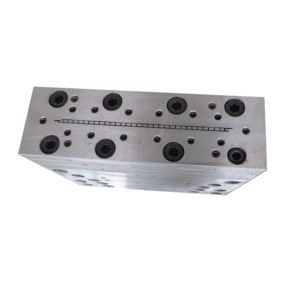



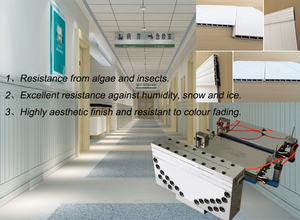






















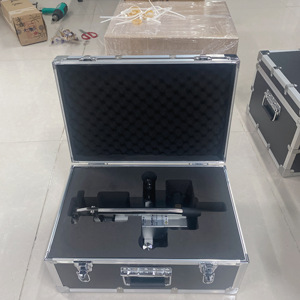
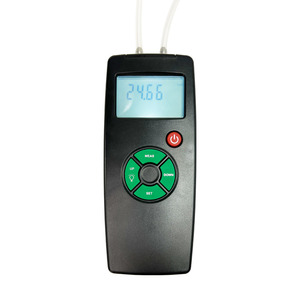

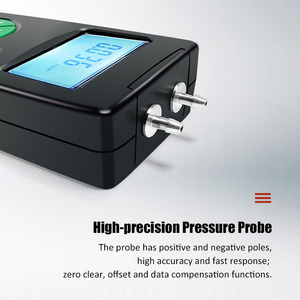



Vacuum calibratorsare available in several types. Each of these types is suitable for different applications and vacuum ranges. The types also ensure the precision and reliability of pressure-measuring devices in a variety of contexts.
Precision Vacuum Calibrators
These calibrators are known for their high accuracy and are widely deployed in laboratories and testing facilities. These calibrators maintain an exceptionally stable vacuum level. This feature allows them to calibrate pressure gauges, sensors, and transducers with stellar precision. In fact, many select these calibrators for research and development or quality control processes.
Low-Pressure Vacuum Calibrators
These calibrators are specifically designed for low-pressure applications. They range from 0 to 0.1 MPa. They often serve in oil and gas, or chemical process industries, where they calibrate devices that measure low pressure. These calibrators frequently utilize high-precision valves and sensors to ensure accurate readings.
High-Pressure Vacuum Calibrators
Users employ these calibrators in industries where the measurement of high vacuum or low pressure is critical. These spaces include aerospace and semiconductor manufacturing. Also, these calibrators can handle pressures up to 10 MPa or more. They provide accurate calibration for devices that function under extreme vacuum conditions.
Digital Vacuum Calibrators
Users favor these calibrators for their ease of use and data recording capabilities. These devices commonly integrate digital displays and data logging functions. This makes them an ideal choice for industries that require real-time monitoring and historical data analysis. Moreover, many analog calibrators use digital transducers. This helps to enhance accuracy and reduce human error in the readings.
Mobile Vacuum Calibrators
These calibrators are intended for field use. They are compact and portable, allowing technicians to perform calibrations on-site. These calibrators are useful for industries like aerospace, where timely calibrations in remote locations are necessary. The durability of these tools often includes robust construction to withstand harsh environments.
These calibrators are vital instruments with diverse roles in precision control, quality assurance, and equipment reliability across multiple industries. Here are several of their key uses:
Semiconductor Manufacturing
The vacuum calibrator is critical to achieving the high-vacuum conditions required for thin-film deposition, etching, and other semiconductor processing techniques in this space. They help tune the vacuum levels in vacuum chambers. This aids in ensuring uniformity and consistency in the semiconductor chips' manufacturing process. Without calibrators, users risk producing defective chips, which in turn, will lead to significant financial losses.
Aerospace Industry
How well a space calibrator works directly impacts equipment safety and reliability in this vertical. They help calibrate pressure sensors, altitude meters, and other vacuum-measuring devices. This, in turn, ensures that aerospace components perform accurately under extreme conditions. Moreover, by utilizing vacuum calibrators, the precision of these critical instruments are improved. This leads to better flight navigation and performance testing.
Oil and Gas Industry
The calibrators here use commonly focus on calibrating pressure sensors and gauges so that there is accuracy during pressure measurement and control in drilling and refining operations. They help ensure that safety devices operate correctly and thus avoid catastrophic failures. Furthermore, calibrators help maintain the accuracy of pressure readings in complex oil pumpsystem. This leads to improved efficiency and reduced operational risks.
Vacuum Packaging
In this space, calibrators help ensure consistency in vacuum levels across packaging machines. This leads to uniform packaging quality. Thus, by providing precise control over vacuum levels, calibrators minimize air retention in packages. This extends product shelf life, prevents spoilage, and improves food safety, which is especially important in the food and pharmaceutical industries.
Metrology and Calibration Laboratories
Vacuum calibrators are essential in metrology to maintain national and international standards for pressure measurements. They commonly assist in calibrating manometers, barometers, and other pressure instruments. This ensures that devices across various industries will measure pressure with uniform accuracy. The above helps in the establishment of performance benchmarks and the reliability of pressure-related operations.
High Precision and Accuracy
These calibrators offer stellar precision, frequently up to ±0.01 MPa. This level of accuracy allows users to achieve meticulous control over vacuum levels, ensuring reliability in calibrating pressure gauges and transducers. Note that this high precision is critical in industries such as aerospace and semiconductor manufacturing where minute discrepancies result in massive consequences.
Wide Vacuum Range
Users can find these calibrators suitable for a variety of vacuum ranges. These ranges are commonly from atmospheric pressure down to ultra-high vacuum levels. Their versatility accommodates diverse industrial needs. This includes both high vacuum in semiconductor industries and low vacuum in chemical processes.
User-Friendly Digital Interface
This is especially important in fast-paced industrial environments. Recently, several vacuum calibrators integrate digital displays. They allow for real-time monitoring and adjustment of vacuum levels. Some of these tools also have data logging capabilities. This makes it easier to record and analyze historical performance data without much stress.
Robust Construction
Many are designed to last under demanding operating conditions in various industries. Some come with durable casings and high-quality materials that ensure long-term protection against wear and tear. This helps reduce maintenance needs and frequently provides long-term reliability.
Portability
Most have a compact and lightweight design. This makes them easy to transport to different calibration points. It is particularly useful in industries that require fieldwork or on-site calibrations. Thus, users no longer have to sacrifice accuracy for mobility.
Buyers should consider several key factors when selecting vacuum calibrators for their clients while ensuring they maximize profit margins:
Precision Requirements
Clients in laboratories or semiconductor manufacturing will usually demand calibrators with high accuracy. These folks are likely to prefer digital models that provide fine control and real-time feedback for this precision. On the flip side, clients in less sensitive environments may settle for analog calibrators.
Vacuum Range
Clients typically need calibrators that can handle a specific vacuum range for their application. Therefore, buyers should ensure they select tools that can accommodate both high and low vacuum needs. It ensures that the calibrator meets the client's operational requirements by confirming the vacuum range of the chosen model.
Industrial Compatibility
One cannot be certain that all calibrators function effectively across various industries. Some are purpose-built for specific applications, like semiconductor manufacturing or metrology. It is therefore important to select a model that complements the client's industry. This will improve the calibrator's performance and reliability.
Budget and ROI
Buyers have to consider the overall cost of ownership for the calibrators. Calibrators with advanced features like digital displays and precision controls will likely have a higher upfront cost. They may also have long-term savings by reducing calibration times and increasing accuracy, so it may be worthwhile to invest in them.
Service and Support
Clients normally prefer tools from brands that offer solid warranty coverage and technical support. Therefore, buyers should pay attention to the manufacturer's reputation for after-sales service. This could impact the tools' downtime and overall client satisfaction.
Clients can effectively use mobile vacuum calibrators in outdoor locations. These calibrators are portable and have designs that can endure various weather conditions. Furthermore, the outdoor environment's temperature, humidity, and altitude may not affect the calibrators' precision or functionality.
Clients should frequently conduct basic maintenance on their vacuum calibrators to ensure optimal performance. One of the most effective ways to maintain these tools is by cleaning them after each usage. This prevents dirt and debris from interfering with their functions. Additionally, clients should regularly check the seals and gaskets for any signs of wear and replace them as needed. Lastly, users should store the tools in a safe, dry environment to protect them from potential damages when not in use.
Manufacturers normally make the basic components of vacuum calibrators with aluminum, stainless steel, or brass. These materials are favored for their exceptional durability and resistance to corrosion. Stainless steel is especially popular in harsh environments due to its ability to withstand extreme temperatures and chemical exposure. In the case of users frequently using brass to make connectors, it ensures a reliable and airtight seal between devices.
Often, before manufacture, a vacuum calibrator is subjected to a stringent quality control process in a professional factory. During this process, experts compare the calibrator's readings to a recognized pressure standard. Any discrepancies discovered are addressed using precise adjustments. This meticulous procedure guarantees each calibrator performs to the highest precision benchmarks.
There are several accessories that manufacturers frequently sell as aftermarket add-ons for the vacuum calibrators. To begin with, additional pressure transducers are available to enhance the calibrator's measurement range. In addition, calibration adapters for unique configurations and protective cases for transport and storage are also available. Buyers should consider these additional accessories, as including them will enhance the calibrators' functionality and reliability and improve clients' satisfaction.